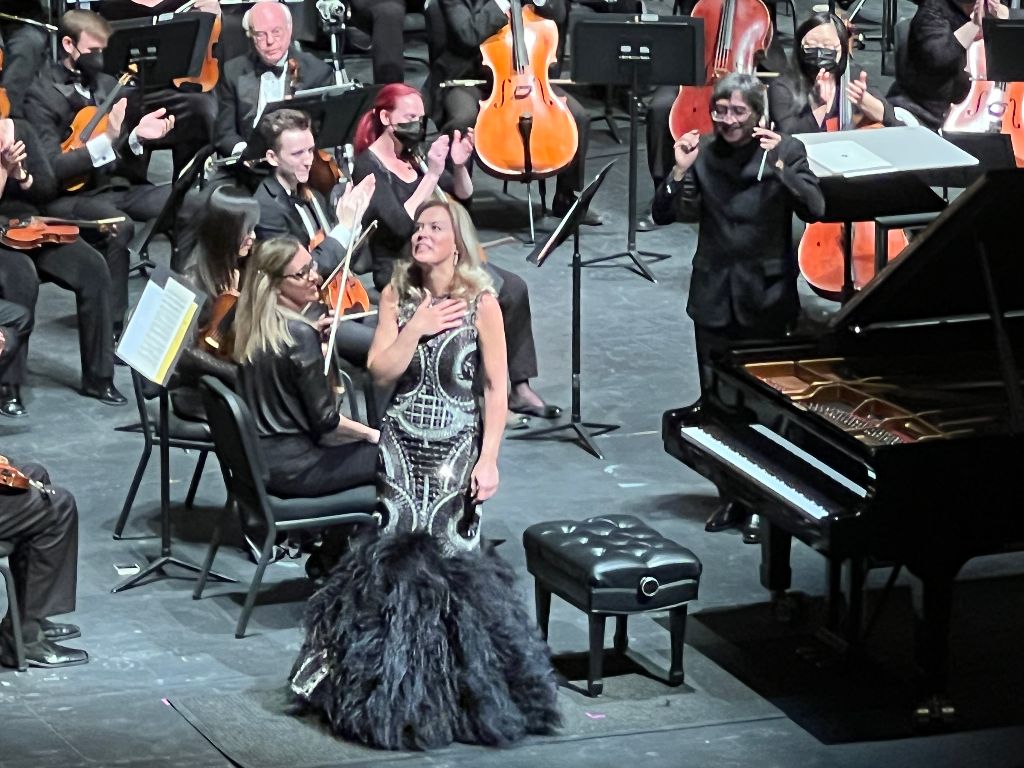The latest concert by Austin Symphony Orchestra featured pianist Olga Kern performing Tchaikovsky’s Piano Concert No. 1.
It was first performed in 1874, by the composer himself. In attendance was his mentor, the great Nikolai Rubenstein (1835-1881), widely regarded as one of the greatest pianists of his time. In addition to being a pianist, Rubenstein was a composer, so he was perfectly situated that Christmas Eve night in 1874 to pronounce a reasoned verdict on the new piano concerto. He wrote it is:
“Utterly worthless, absolutely unplayable. Certain passages are so commonplace and awkward they could not be improved, and the piece as a whole was bad, trivial, and vulgar.” Not exactly a welcome Christmas gift!
Despite the fact this is a widely-played concerto (mostly because a few bars in the first movement are catchy and therefore famous), I am compelled to agree with Rubenstein. The first movement in particular is atrociously bad.
Nonetheless, Kern was tasked with putting the best face on this monstrosity, which does improve as it goes along. After the initial fanfare it seems to falter only to be rescued by a sprightly passage on the piano. Unfortunately, this is followed by another desultory passage on the piano with lots of rapid keystrokes that are not eminently pleasing. It then progresses to sounds that are so tentative it almost sounds like the composer lost his way. The concluding portion of the first movement is more technically accomplished, more as one would expect in a concerto.
The second movement opens with a flute rising on a gentle air, which allows the strings to begin. Kern carefully stepped on this melody, breathing more life into it. A short passage by a single cello is delightful. The piano for some reason then goes into overdrive, quite exhausting the orchestra that just stops playing for a while. Once things calm down, we are treated to a long melody featuring two flutes. The third movement is a highly developed composition that is as great a vehicle for the orchestra as it is for the piano. A powerful finish delivers a great impact, and Kern certainly did the most any pianist could do with this unweildy vehicle.
The other major composition performed was the complete Firebird by Stravinsky. Performed in 1910, this is actually the full score for the ballet Firebird. Inexplicably, in a city that hosts a ballet school, no ballet dancers were in evidence. While there was no need to perform the entire ballet, it would have been a tremendous gift to the audience to have at least a few minutes of ballet to accompany the score. The orchestra performed this long and difficult piece extremely well, however, are to be to commended for their professional effort.
Tickets for future performances: austinsymphony.org
